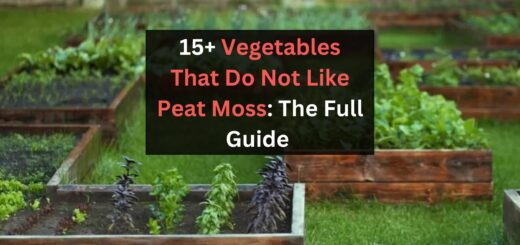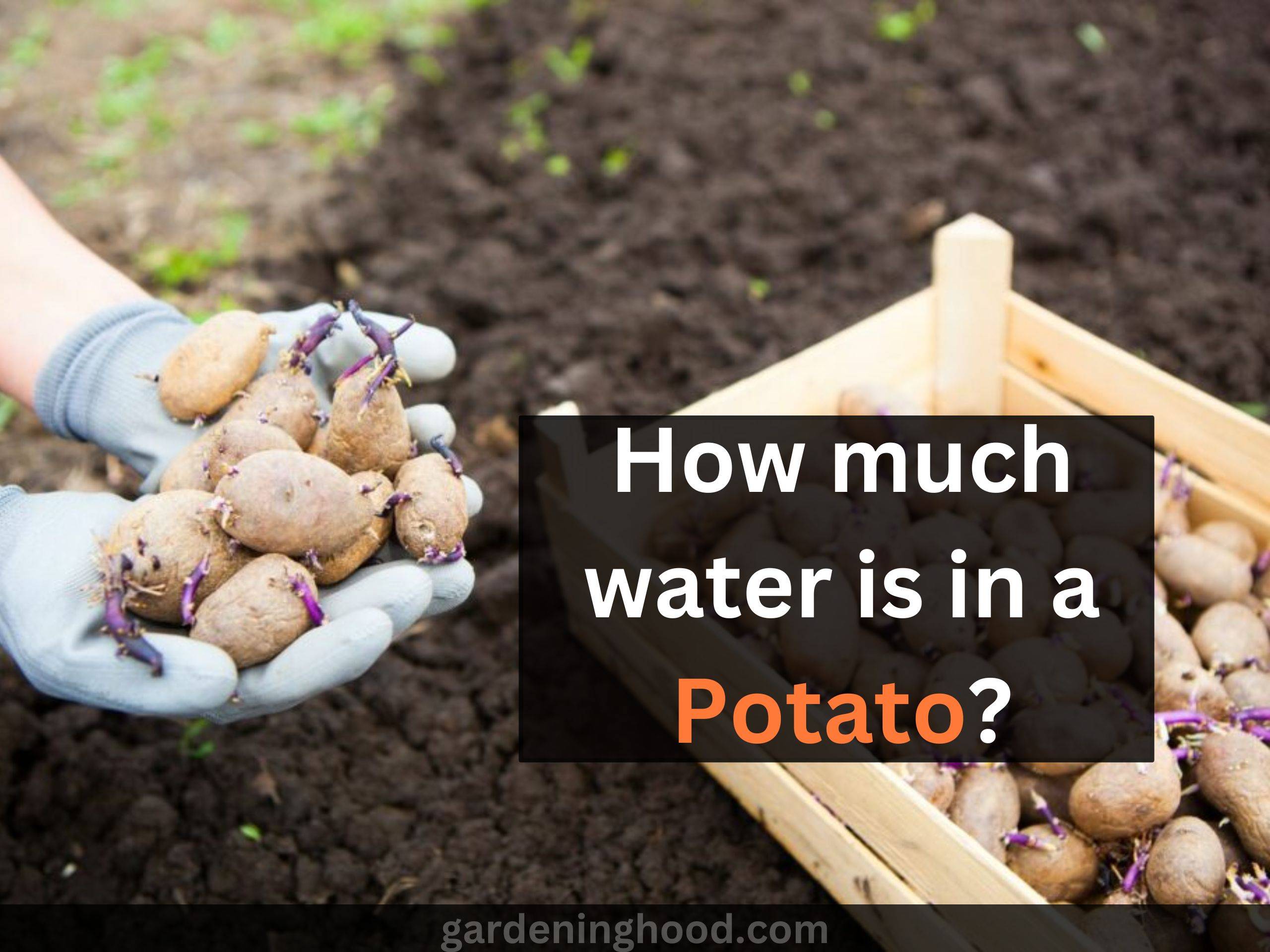How to make Sandy Soil for Carrots? (Do they need it?)
Hey folks! Welcome back!
I hope you are doing great in your gardening field. Do you know How to make Sandy Soil for Carrots? It’s crucial to grow carrots on sandy soil for them to have a beautiful shape. Although sandy soil works best for growing carrots, gardens rarely use this sort of soil.
This means that if you want a carrot that is properly formed, you need to invest in creating a garden bed just for that purpose.
Quick takeaways:
- Add various amounts of coarse builders’ sand to the soil to create sandy soil for carrots.
- By using a tiller or double digging with a spade or fork, thoroughly incorporate the sand into the soil.
- If you’re growing your carrots in containers, a raised bed, or on the ground, you should do this.
In this article, we’ll outline the exact steps of creating sandy soil for growing carrots and briefly discuss its significance.
You probably haven’t heard of this procedure yet because there aren’t many reasons why you’d want to make your soil sandier. Be at ease; we are here to assist.
How to make Sandy Soil for Carrots?
Below are the points to make sandy soil for carrots:
Use the Right Kind of Sand
I’ll define sand before we discuss the distinctions between these three planting situations. It’s crucial to use coarse builders’ sand for growing carrots. Because it is far too salty, ocean sand is useless, while thinner river sand may be too fine.
You should add a lot of sand to the area to improve the soil if you want to plant the carrots in the ground using the soil you currently have.
The soil’s prior conditions will determine how much sand to add. For instance, adding a lot of sand and compost will help loosen up heavy clay soil. A few fistfuls of sand per square meter are sufficient for loamy soil.
Integrating into the Soil
Use a tiller to turn the soil about 12 inches deep or double-dig the bed to incorporate these fertilizers into the soil. Although double digging is substantially more work, it is worthwhile to safeguard your soil structure if you are only preparing a small area.
It’s possible that you don’t need to alter your current soil. Some explanations include the lack of a rototiller, the laborious nature of double digging, or the difficulty of working with the original soil due to its high clay content. Consider planting carrots in raised beds or containers if this is your situation. Even though it may cost a little extra to add external growing materials, you can be sure that your soil will be ideal for growing carrots.
Use the Right Proportion of Sand to Soil
You may fill your growing spaces with a variety of recipes for raised beds and containers. The simplest mixture is to combine equal volumes of sand and compost. This will provide you with ample organic matter and loose sand for simple drainage.
The issue here is that your compost may contain too much nitrogen if it contains a lot of manure. Because of this, I prefer to combine 1 part sand, 1 part germination mix (or sifted potting soil), and 1 part aged compost when making my carrot potting mix.
Try experimenting with various combinations if you’re growing carrots in a few different locations so you can compare the outcomes. Additionally, bear in mind that certain dwarf types of carrots are best suited for thin soil if you are growing in pots.
For more such plant related-articles, you may also read, Top 7 Carrot Varieties for Containers (and Where to get Seeds?)
Does One Need Sandy Soil for Growing Carrots?
Although sandy soil is ideal for growing carrots, sandy soil is not necessary for carrot plants to flourish or bear large, healthy carrots.
Carrots can grow in a range of soil types, although they are more likely to be misshapen, forked, or small if the soil is heavy or contains more rocks and twigs.
Carrots can be grown in thick clay soil, although you may have better luck with shorter, stockier kinds, such as Chantenay variants or small globe carrots. Heavy soils can also be improved so that carrots can be grown in them.
Carrots are typically grown on sandy soils because the loose dirt allows the taproots, or the real carrots, to grow thicker and straighter without being constrained by pressure or resistance.
Even though veggies (including carrots) do better in sandy soil, there are two drawbacks: decreased water retention and nutrient loss. Sand has a relatively small water-holding capacity and dries out considerably more quickly because it is simply finely powdered rocks.
The more problematic this becomes, the sandier your soil is. Similar to how soil lacks essential minerals like nitrogen, fertilizer added to sand will quickly wash away the next time it rains.
It is not necessary to add sand to thick, clay soil. Sometimes, especially when combined with fine sand, clay soil for carrots might be improved just somewhat.
Even though rougher sand is better at enhancing drainage, it may be too stony to support the growth of well-shaped carrots, leading to increased taproot forking.
Do Carrots Need Sandy Soil?
Yes, carrots need sandy soil to grow, but they can even survive in the sand loam soil, so it is not rigid in their soil needs.
Carrots will grow well in different types of soil but if there are stones or clumps in the soil, then the soil becomes heavier and the carrots will develop tiny. Carrots will grow better if the soil is sandy.
Can You Grow Carrots in Peat and Coco Coir?
Yes, carrots can grow in peat and coco coir, if they fall with less content of nitrogen in it. As you know both the elements are light and retain moisture at their best so it will be a great idea to use them in the garden beds or even in the containers that are filled with potting mix.
Keep in mind you have to add a quantity of fertilizer to it especially the fertilizer that is low in nitrogen that will help to green leaves in the plant and also ensures the growth of the plant. To maintain a better root system In the plant, You have to use a high content of phosphorus and potassium in the plant.
Why are Carrots grown in Sandy Soil?
Yes, carrots love to grow in sandy soil as they require a loose medium for their growth that should be free from stones and clumps.
It will help in developing a uniform shape of the carrots. The roots of the carrots become larger when they develop.
If the soil is clay soil that is dense then the carrots will not be able to survive for long, whereas if the soil is loamy and does not contain rocks then the carrots will grow at their best.
Conclusion
Carrots are frequently one of the first root vegetables people grow in their backyards, but they have a reputation for being picky growers, with the majority of complaints originating from the harvest of undersized or malformed carrots.
To develop properly, the carrot taproot (the portion we eat) needs soil that is loose and devoid of stones. This has made many gardeners wonder if they can produce carrots without loose, sandy soil.
Thanks for reading! Happy gardening!
FAQ‘s
Do carrots need sandy soil?
Yes, carrots need to grow in sandy soil. They can even tend to thrive in loamy soil which needs to be loose. Make use of well-drained soil.
What kind of soil do you need for carrots?
Carrots tend to grow in loose soil which should be mixed with clay and sand. Provide them with their desired soil so that they thrive well.


